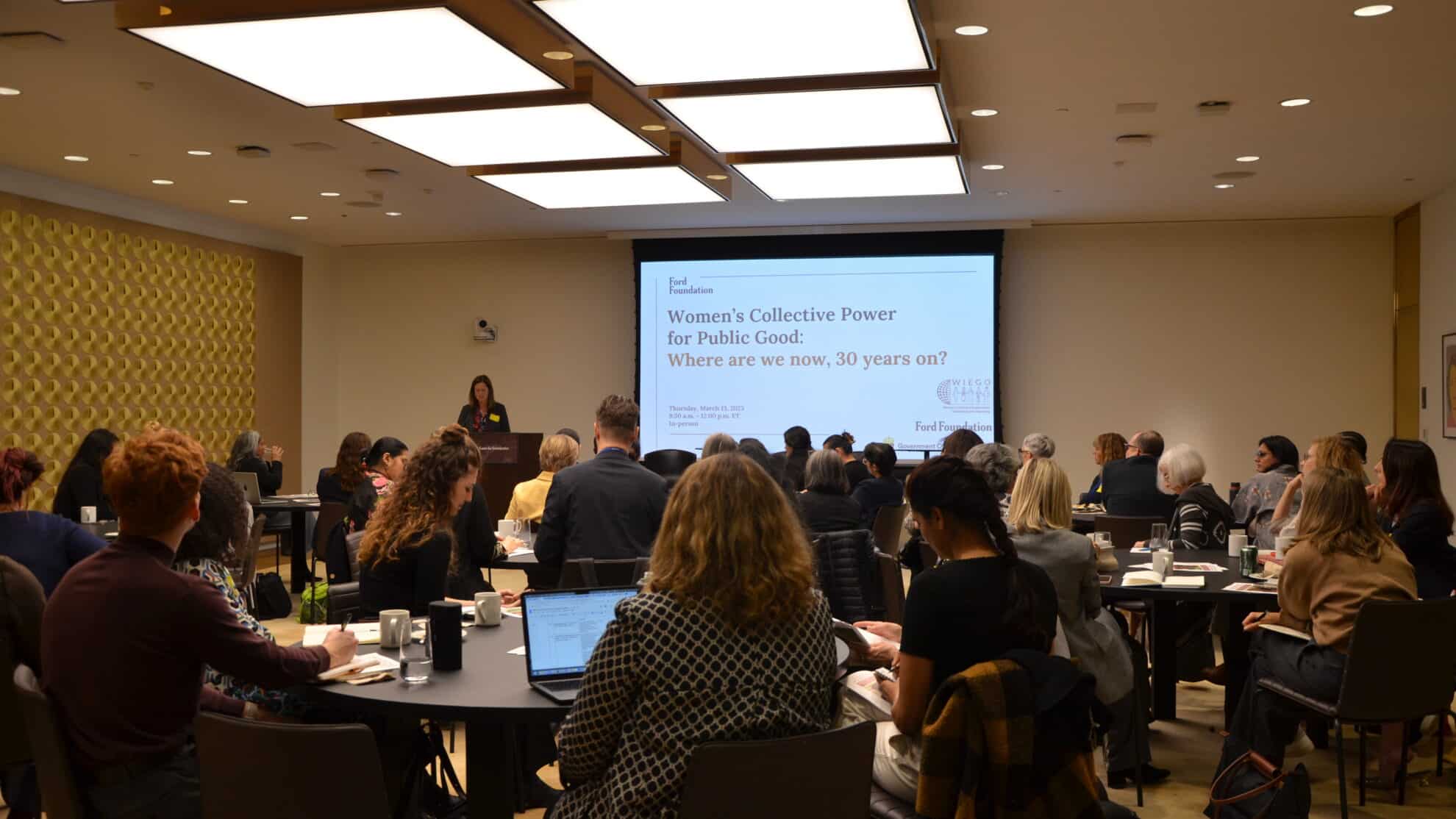CSW69 Side Event: Women’s Collective Power for Public Good: Where are we now, 30 years on?
-
March 13, 20259:30am - 12:30pm UTC

Despite some progress in women’s rights, significant challenges remain, including economic barriers, weak social protections and gender-based violence and harassment (GBVH) in the workplace. Women’s collectives – such as support groups, cooperatives, worker organizations or unions – are critical in addressing these issues, but how can they move beyond meeting immediate needs to driving systemic change?
As the Commission for the Status of Women marked 30 years since the Beijing Conference, the Government Offices of Sweden, the Ford Foundation and WIEGO organized a panel and community discussion to explore:
The event featured a series of three panels. Speakers for the panel on care included:
This was followed by a panel on gender-based violence and harassment at the workplace featuring remarks from:
The final panel explored the topic of social protection and included interventions by:
Sarita Gupta, Vice-President, US Programmes, Ford Foundation provided a welcome to participants where she spoke to the critical role of philanthropy in organizing women workers in the informal economy who are often the hardest hit during times of crisis. She discussed the urgent need to support women’s organizing, and to defend the public good for a more just economy. Gisela Strand, Senior Gender Advisor, Sida then provided opening remarks where she highlighted the role of government and civil society in enhancing the impact of women’s collective for the public good. The panel discussions were moderated by Laura Alfers, International Coordinator at WIEGO and were followed by small group discussions where participants discussed the role of governments, philanthropy, and civil society allies in supporting women’s collectives, given the unstable context.